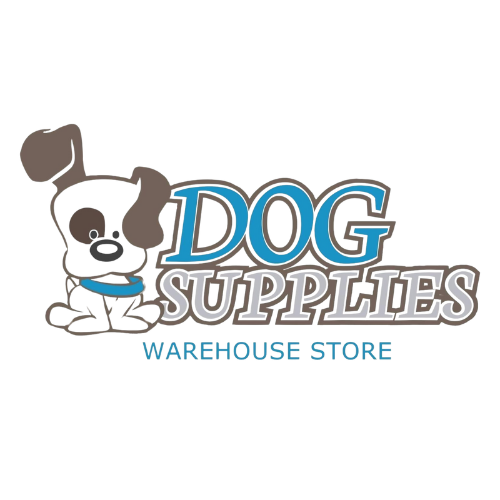With the increasing concern over the quality of commercial dog foods, more pet owners are turning to homemade dog food recipes. This approach offers the ability to control what goes into your dog’s meals, ensuring they get the best possible nutrition. However, preparing homemade meals for dogs comes with both significant benefits and potential risks. This article delves into the pros and cons of homemade dog food recipes, providing you with the information needed to make an informed decision for your pet’s health and well-being.
Benefits of Homemade Dog Food
Control Over Ingredients
One of the primary benefits of homemade dog food is the ability to control every ingredient that goes into your dog’s meals. This control allows you to select high-quality, nutrient-rich foods and avoid harmful additives, preservatives, and fillers often found in commercial dog foods.
By using fresh, whole ingredients, you can ensure that your dog receives a balanced diet rich in vitamins, minerals, and other essential nutrients. For example, incorporating lean meats like chicken or turkey, fresh vegetables such as carrots and spinach, and whole grains like brown rice or quinoa can significantly improve your dog’s overall health. Additionally, you can cater to specific dietary needs, such as using hypoallergenic ingredients for dogs with food sensitivities or allergies.
Advice:
- Always choose organic and non-GMO ingredients when possible.
- Avoid ingredients that are known to be harmful to dogs, such as onions, garlic, and chocolate.
- Consider supplementing with essential vitamins and minerals as recommended by a veterinarian.
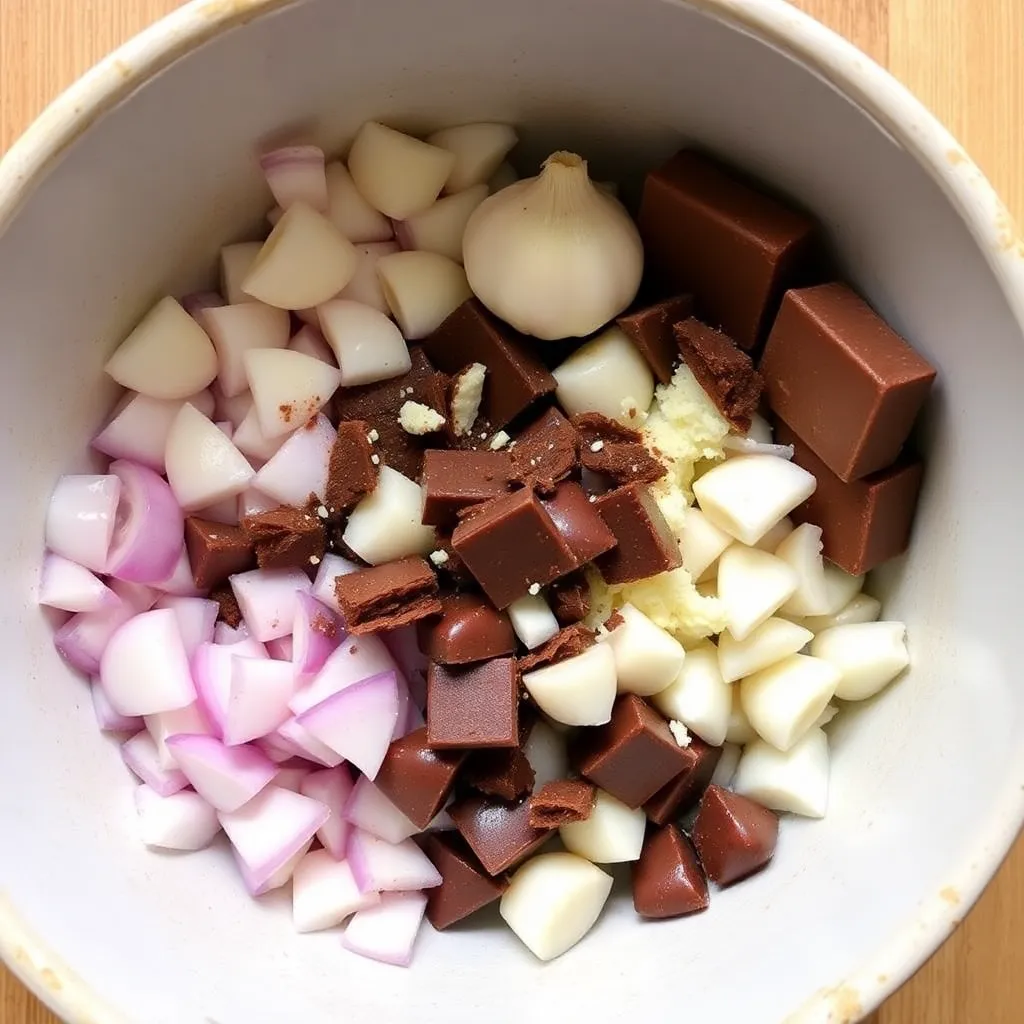
Catering to Specific Dietary Needs
Homemade dog food allows you to tailor meals to meet your dog’s unique dietary requirements. This customization is particularly beneficial for dogs with specific health conditions, food allergies, or dietary intolerances.
If your dog has a condition such as kidney disease, you can create meals that are lower in phosphorus and protein. Similarly, for dogs with diabetes, you can prepare meals with a low glycemic index to help manage their blood sugar levels. This level of customization is difficult to achieve with commercial dog foods.
Advice:
- Work with your veterinarian to identify your dog’s specific dietary needs and create a balanced meal plan.
- Regularly monitor your dog’s health and adjust the diet as necessary to ensure they are receiving the proper nutrients.
Freshness and Quality
Homemade meals can offer superior freshness and quality compared to commercial dog foods. Without the need for preservatives, homemade dog food can provide a more natural and wholesome diet for your pet.
Freshly prepared meals are often more palatable to dogs, encouraging better eating habits and reducing food waste. Moreover, the absence of artificial preservatives, flavors, and colors means that your dog is consuming a more natural diet, which can contribute to better overall health and reduced risk of chronic diseases.
Advice:
- Prepare meals in small batches to ensure freshness.
- Store prepared food in airtight containers in the refrigerator or freezer to maintain its nutritional value and prevent spoilage.
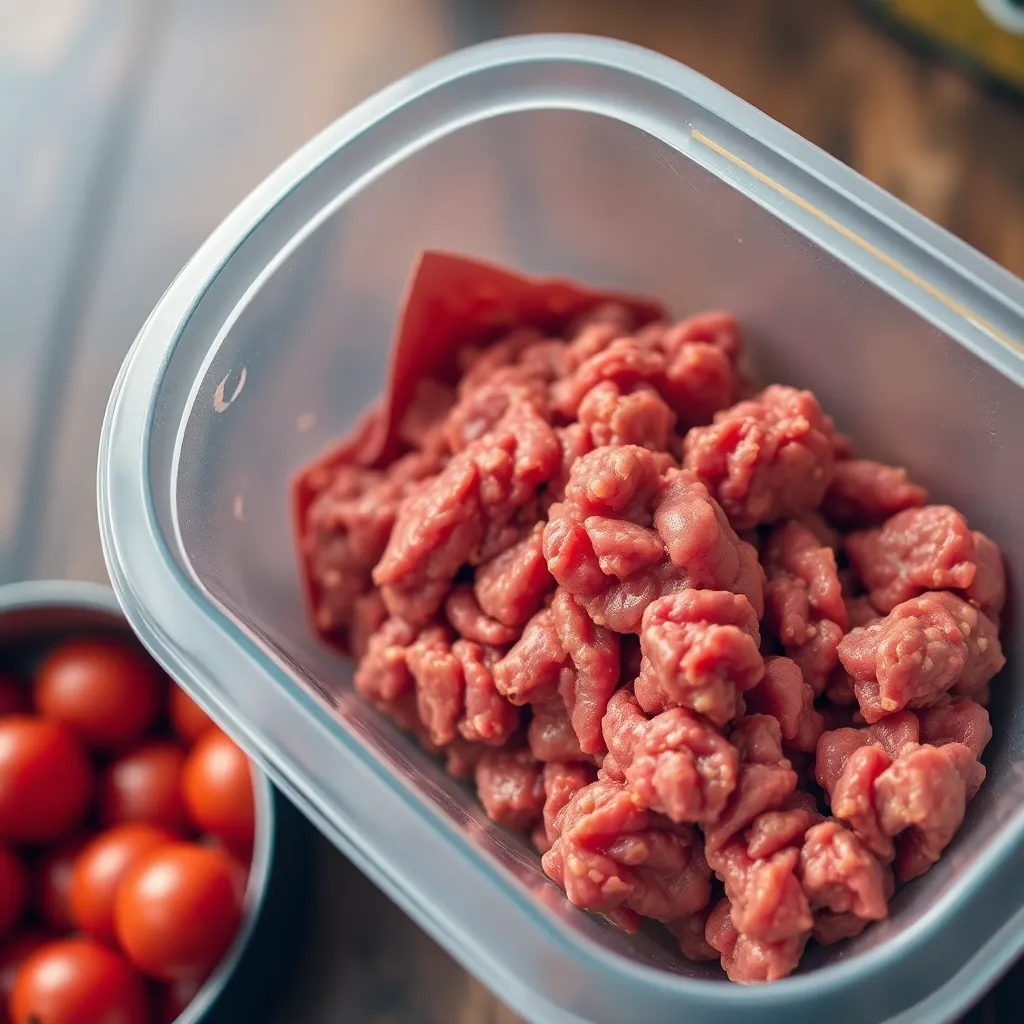
Potential Cost Savings
While it might seem that homemade dog food would be more expensive, it can sometimes be more economical than purchasing high-quality commercial dog food, especially when buying ingredients in bulk and utilizing seasonal produce.
By sourcing ingredients locally and in bulk, you can reduce the overall cost of preparing homemade dog food. Additionally, you can take advantage of seasonal produce, which is often more affordable and nutrient-dense.
Advice:
- Look for sales and discounts on bulk ingredients.
- Consider growing your own vegetables to further reduce costs.
Potential Risks of Homemade Dog Food
Nutritional Imbalances
One of the most significant risks associated with homemade dog food is the potential for nutritional imbalances. Unlike commercial dog foods, which are formulated to meet specific nutritional standards, homemade diets can lack essential nutrients if not carefully planned.
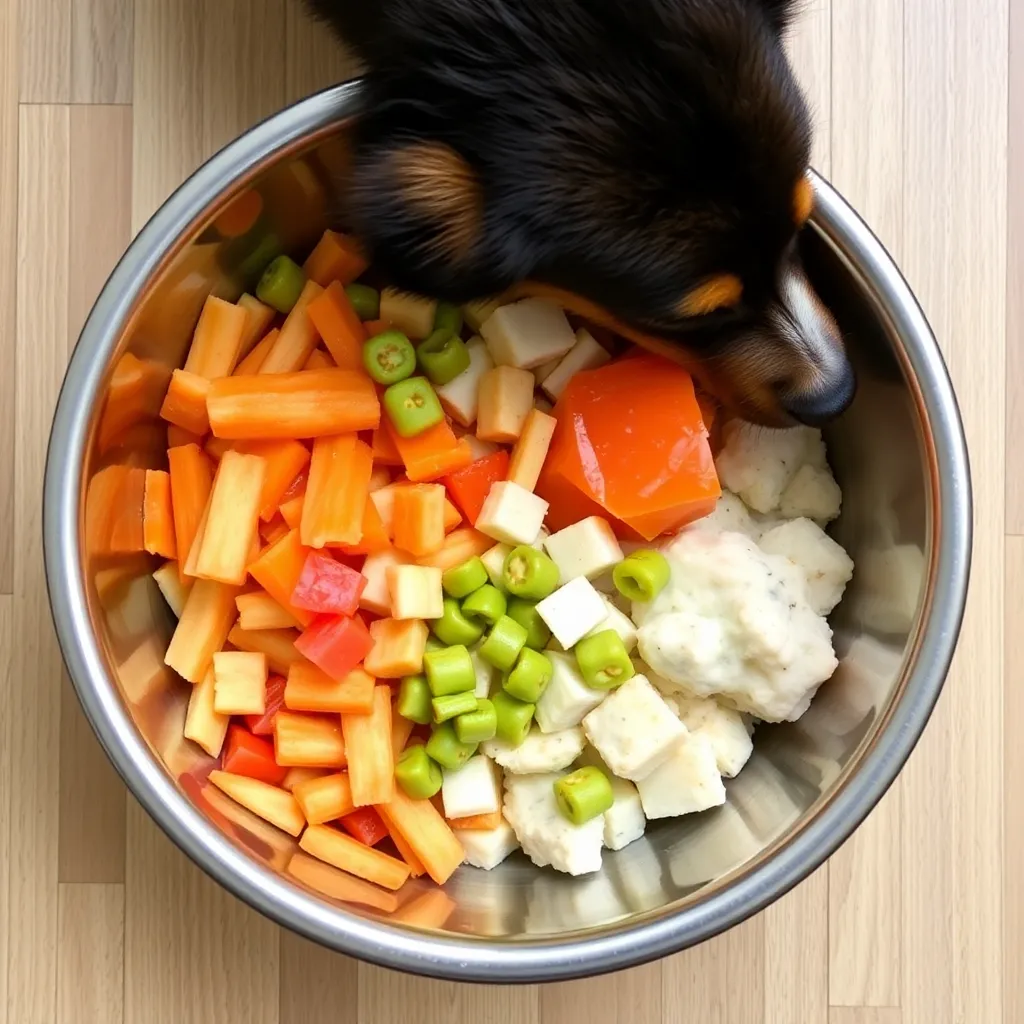
Dogs require a balanced diet that includes the right proportions of protein, fat, carbohydrates, vitamins, and minerals. Without proper knowledge and planning, it is easy to overlook essential nutrients, leading to deficiencies or excesses that can affect your dog’s health. For example, a diet that is too high in calcium can lead to kidney stones, while a diet deficient in essential fatty acids can result in poor skin and coat health.
Advice:
- Consult with a veterinarian or a pet nutritionist to create balanced recipes.
- Regularly rotate ingredients to ensure a variety of nutrients.
- Consider using supplements to fill any nutritional gaps.
Time and Effort
Preparing homemade dog food requires a significant time commitment, from planning and shopping to cooking and portioning. This process can be labor-intensive and may not be feasible for everyone.
The time spent preparing homemade meals can be substantial, particularly if you are making meals from scratch on a daily or weekly basis. This commitment includes researching recipes, sourcing ingredients, and cooking in large batches.
Advice:
- Dedicate one day a week to meal prep to streamline the process.
- Use kitchen tools like slow cookers, food processors, and batch cooking to save time.
- Freeze portions in advance to reduce daily cooking time.
Food Safety Concerns
Handling and storing raw ingredients properly is crucial to prevent contamination and foodborne illnesses. Raw meats, in particular, can pose a risk if not handled with care.
Improper handling of raw ingredients can lead to bacterial contamination, which can cause foodborne illnesses in both dogs and humans. It is essential to follow strict hygiene practices when preparing homemade dog food, including washing hands and surfaces thoroughly and storing food at the correct temperatures.
Advice:
- Always wash your hands and utensils after handling raw meat.
- Store raw ingredients and prepared meals in the refrigerator or freezer promptly.
- Use separate cutting boards for meat and vegetables to avoid cross-contamination.
Lack of Veterinary Guidance
Creating a balanced homemade diet without professional guidance can lead to nutritional deficiencies or excesses. Regular consultation with a veterinarian is essential to ensure that your dog’s diet meets all their nutritional needs.
Veterinarians can provide valuable insights into your dog’s nutritional requirements based on their age, breed, weight, and health status. Without this guidance, it can be challenging to ensure that homemade meals are nutritionally complete and balanced.
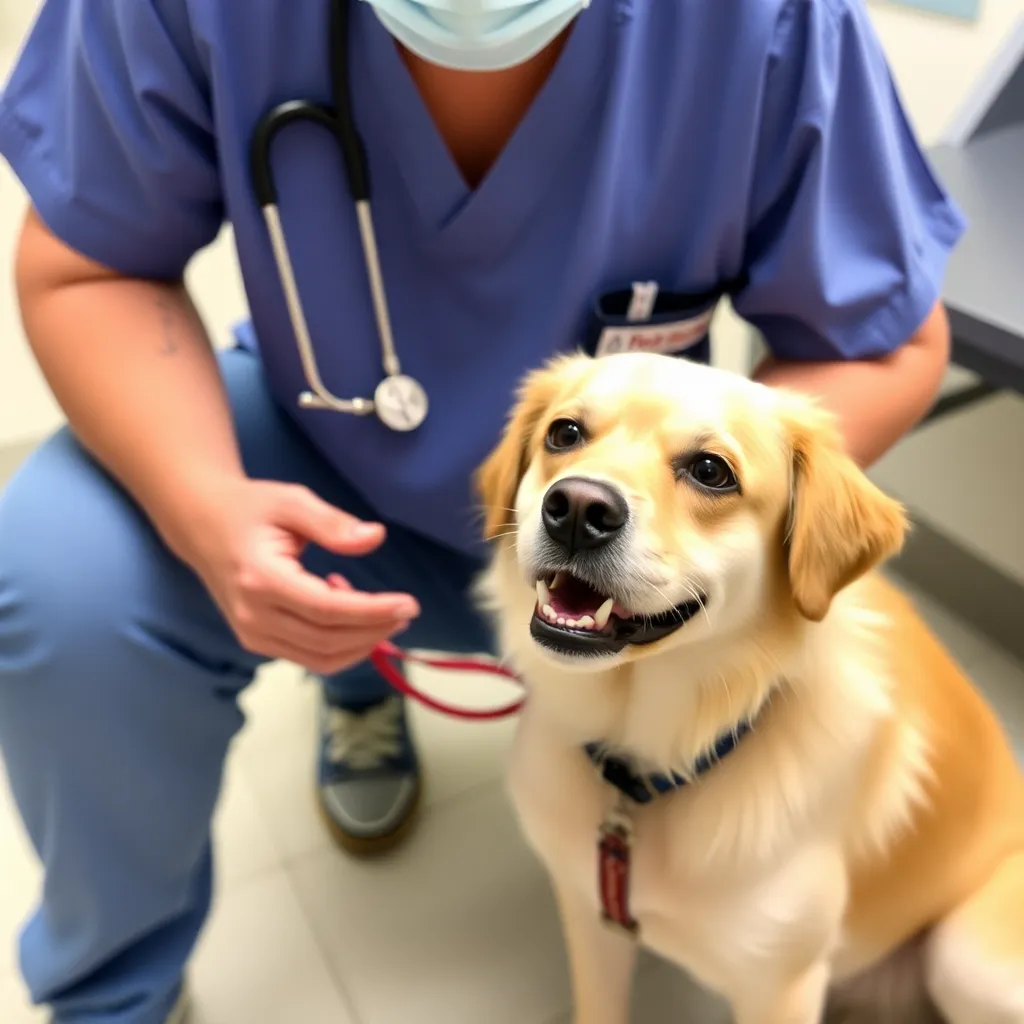
Advice:
- Schedule regular check-ups with your veterinarian to monitor your dog’s health and dietary needs.
- Keep detailed records of your dog’s diet, including ingredients and portion sizes, to discuss with your vet.
- Be open to adjusting the diet based on your vet’s recommendations.
Conclusion
Homemade dog food recipes offer numerous benefits, including control over ingredients, the ability to cater to specific dietary needs, and the assurance of serving fresh, high-quality meals. However, they also come with potential risks such as nutritional imbalances, significant time commitments, food safety concerns, and the need for ongoing veterinary guidance.
Before transitioning your dog to a homemade diet, consult with your veterinarian to create a balanced meal plan that meets your dog’s unique nutritional needs. With careful planning and professional support, homemade dog food can be a healthy and rewarding choice for your beloved pet.
For more information on creating balanced homemade dog food recipes and to explore additional resources, consult your veterinarian or a certified pet nutritionist. By taking the time to educate yourself and seek professional advice, you can ensure that your dog receives the best possible nutrition.

After 5 years in a high pace business management role, I partnered with an e-commerce developer to start building Dog Supplies Warehouse.
Our number one goal is to make sure all products are managed and delivered to our customers door fast and accurately.
